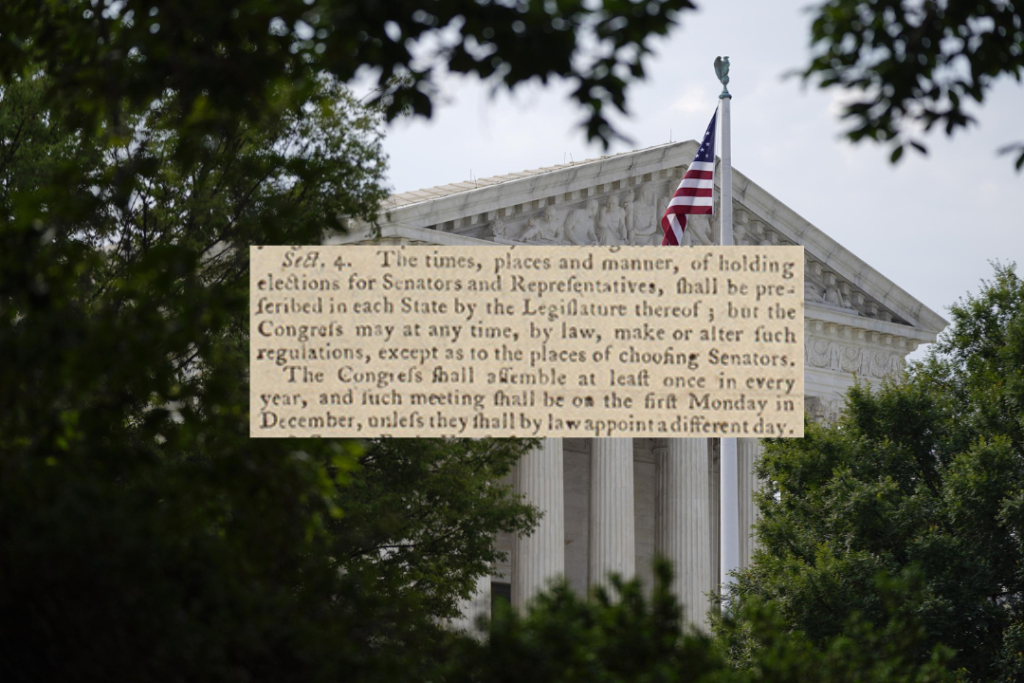As you know the Supreme Court has the Moore v. Harper case on its docket for the upcoming term which involves the “independent state legislature” theory. Although this theory does not have a clear definition but rather is a process or way of thinking, we want to break down what is being said.
You will hear from many who oppose the “independent state legislature” theory that it is a threat to democracy and free and fair elections. That it would disallow checks and balances and would go against “the U.S. Constitution, Supreme Court precedent, American history, the U.S. Constitution and upend our federalist system”. They also say that the reference of “legislature” in the constitution when it comes to elections should be taken to mean the state’s general lawmaking process including governor’s signature/veto and rulings of state courts, not simply the legislature alone.
Article 1 Section 4 of the Constitution says “The Times, Places and Manner of holding Elections for Senators and Representatives, shall be prescribed in each State by the Legislature thereof”.
We are of the opinion that if the constitution says state legislature, it means state legislature simply because that is an official body that has enumerated powers rather than a general process. We see in our founding documents distinctions between those official bodies so it leads us to believe that when the founding fathers said state legislature…they meant state legislature.
Unlike what opposition will say in that it “upends our federalist system”, we believe the opposite. In fact, by reaffirming the distinction and separation of powers rather than the centralization of powers, it brings it closer to the people.
For more information click here.


